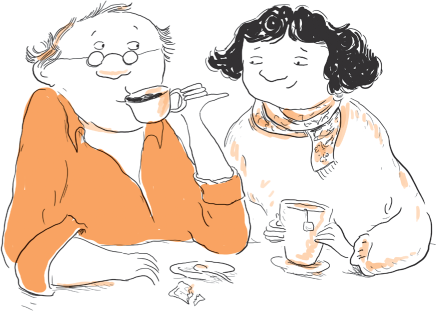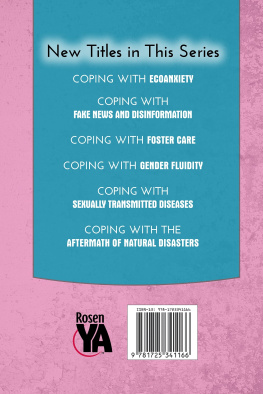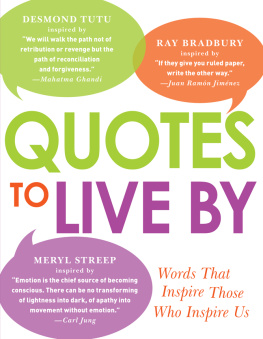Marcia Mihotich - Quotes to Live By
Here you can read online Marcia Mihotich - Quotes to Live By full text of the book (entire story) in english for free. Download pdf and epub, get meaning, cover and reviews about this ebook. publisher: The School of Life, genre: Home and family. Description of the work, (preface) as well as reviews are available. Best literature library LitArk.com created for fans of good reading and offers a wide selection of genres:
Romance novel
Science fiction
Adventure
Detective
Science
History
Home and family
Prose
Art
Politics
Computer
Non-fiction
Religion
Business
Children
Humor
Choose a favorite category and find really read worthwhile books. Enjoy immersion in the world of imagination, feel the emotions of the characters or learn something new for yourself, make an fascinating discovery.
- Book:Quotes to Live By
- Author:
- Publisher:The School of Life
- Genre:
- Rating:4 / 5
- Favourites:Add to favourites
- Your mark:
- 80
- 1
- 2
- 3
- 4
- 5
Quotes to Live By: summary, description and annotation
We offer to read an annotation, description, summary or preface (depends on what the author of the book "Quotes to Live By" wrote himself). If you haven't found the necessary information about the book — write in the comments, we will try to find it.
Quotes to Live By — read online for free the complete book (whole text) full work
Below is the text of the book, divided by pages. System saving the place of the last page read, allows you to conveniently read the book "Quotes to Live By" online for free, without having to search again every time where you left off. Put a bookmark, and you can go to the page where you finished reading at any time.
Font size:
Interval:
Bookmark:

to Live By
Published in 2022 by The School of Life
First published in the USA in 2023
930 High Road, London, N12 9RT
Copyright The School of Life 2022
Illustrations Avi Ofer
Designed and typeset by Marcia Mihotich
Printed in Latvia by Livonia Print
All rights reserved. This book is sold subject to the condition that it shall not be resold, lent, hired out or otherwise circulated without express prior consent of the publisher.
A proportion of this book has appeared online at
www.theschooloflife.com/articles
Every effort has been made to contact the copyright holders of the material reproduced in this book. If any have been inadvertently overlooked, the publisher will be pleased to make restitution at the earliest opportunity.
The School of Life is a resource for helping us understand ourselves, for improving our relationships, our careers and our social lives as well as for helping us find calm and get more out of our leisure hours. We do this through creating films, workshops, books, apps and gifts.
www.theschooloflife.com
ISBN 978-1-915087-36-2
10 9 8 7 6 5 4 3 2 1
Though we all tend to complain of being short of time, most of what we are served up to read is very long indeed. A dispiriting prejudice leads us collectively to associate length with depth and brevity with shallowness. It would sound rather peculiar to claim that ones favourite work of literature might only be a couple of lines long.
But the history of thought is filled with masterpieces of concision. The art of the aphorism or maxim, though it has never been a dominant tradition, has enjoyed contributions from some of the greatest thinkers, including Seneca, La Rochefoucauld, Chamfort, Schopenhauer and Nietzsche.
A good aphorism removes everything extraneous to a thought so that it can travel with maximal ease, in its purest psychological essence and across gaps of culture, from one mind to another. Take the following aphorism:
We all have strength enough to bear the misfortunes of others.
Written in the aristocratic circles of mid-17th-century Paris by the Duc de La Rochefoucauld, it has carefully been shorn of any of the circumstances that gave rise to it; it has been polished into a hard gem-like form that is guaranteed to survive and spark recognition so long as humans are in existence. There might have been a particular lady with a castle in Burgundy, whose cloyingly pity-filled manner La Rochefoucauld especially wanted to skewer, and the thought might have come to him one night at the dinner table of the Baron X (where they were served veal and potato dauphinoise), but no such novelistic details are required. The thought escapes the setting that catalysed it and can find immediate application even in our own technological, secular times as if La Rochefoucauld had personally known our aunt or overheard a conversation between two of our old university friends.
Even if we have no pretensions to creating literature, trying to write aphorisms ourself can be of immense therapeutic value. We dont need to complain of any one set of people who might have annoyed us, or any one moment of special embarrassment or sorrow in our lives. We can recast the specific event in its general form. When we get home at night after another superficial social encounter or fretful day at the office, we can push ourselves to evaporate our travails into a cool, sharp-edged reflection that gives us a victory over the chaotic, troubling setting that laid the groundwork for it.
What follows is a collection of The School of Lifes own aphorisms culled from across its emotional curriculum. The School of Life has always believed in the importance of not just attempting to say wise things but also of trying to make sure with all the resources of art that they can be noticed and have an effect on people at large. It does not trust that so long as our ideas are important, the style in which we deliver them is of no issue. Most of us are so distracted; if someone wants to get a point across to us, they must use extreme ingenuity to seize our attention and cauterise our boredom for a few moments. The School of Life imagines itself to be writing for an impatient audience with curious but restless minds.
The 17th-century French philosopher Pascal once famously apologised to a friend for writing him a long letter, explaining that he unfortunately had not had time to make it shorter. This touches teasingly on a sincere truth about aphorisms: they are a good deal more arduous to write than baggier pieces of prose. But the result when it works should be commensurately rewarding. Someone has produced a general rule out of a mere local instance of pain, joy or irritation and gifted us a moment of clarity and solidarity. If the aphorisms contained here have correctly honoured their mission, it should be our lives we find repeatedly illuminated in the pages that follow; the book should know us as well as, and sometimes better than, we know ourselves.
The only people we can think of as normal are those we dont yet know very well.
*
The challenge of marriage: were at our most polite and humble with people when they are at their greatest liberty to leave us.
*
It is easiest to confidently seduce those we are least attracted to.
*

One can tell that an attraction has started when it becomes embarrassing to look at someones wrists and, more so, their fingers.
*
All those unfair sounding complaints that your partner once reported their ex making against them, and to which you listened with so much sympathy on the early dates, you will in time end up understanding painfully well.
*
A silence with a beautiful person tends to leave you feeling you are the boring one.
*
It should count as a great psychological achievement to no longer automatically despise those who like us.
*
We keep imagining that we havent met the right person; we overlook that we might have the wrong picture of love.
*
Natures exaggerated ways: to ensure that we will make, at most, four children in a lifetime, we have to desire obsessively from twelve to eighty.
*
There is as much sexual rejection within long-established relationships as there is among singles on the dating scene; it just hurts more.
*
Regret about exes: never trust what you feel now, only what you knew then.
*
In love, rather than being heralded as perfect, it is a great deal more reassuring, and therefore romantic, to be recognised as deeply flawed but on that basis, deserving of boundless tenderness and patience.
*
One rarely falls in love without being as much attracted to what is interestingly wrong with someone as what is objectively healthy.
*
When we say that we want a partner with a good sense of humour, we dont want jokes in general; we want someone with the maturity to find themselves ridiculous. Were looking for an end to self-righteousness.
*
If we were properly sane, rather than being at once overwhelmed by the thought that we had found the one, we would calmly reflect: They seem nice enough and it will take twenty-five years to know more.
*
It takes time and experience to realise that we cannot, in the end, rescue anyone at best, just facilitate certain moves they were on their way to making anyway.
Font size:
Interval:
Bookmark:
Similar books «Quotes to Live By»
Look at similar books to Quotes to Live By. We have selected literature similar in name and meaning in the hope of providing readers with more options to find new, interesting, not yet read works.
Discussion, reviews of the book Quotes to Live By and just readers' own opinions. Leave your comments, write what you think about the work, its meaning or the main characters. Specify what exactly you liked and what you didn't like, and why you think so.













